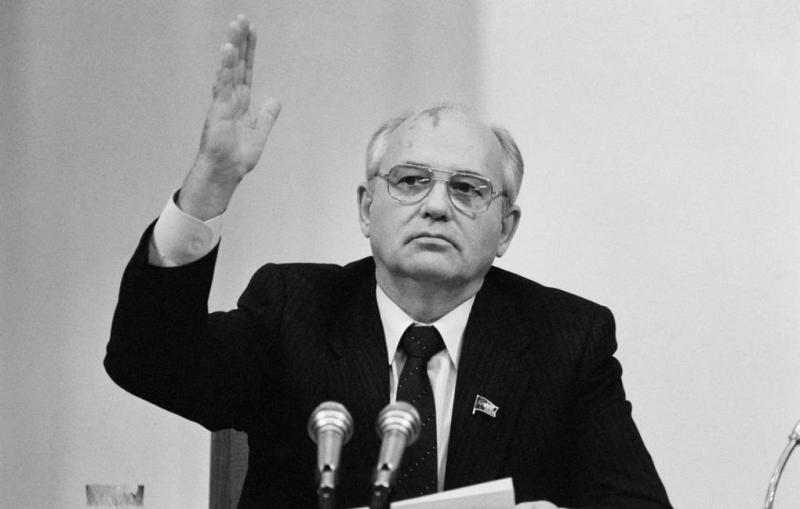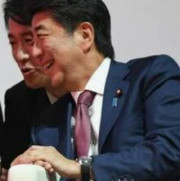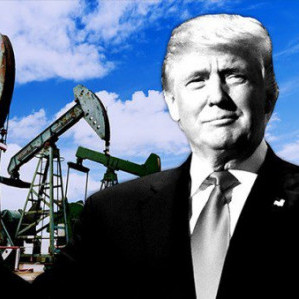
© Vladimir Zavyalov/TASS
Top stories from the Russian press on Wednesday, August 31st, prepared by TASS
Media: Ex-USSR President Mikhail Gorbachev dies following long illness
Former Soviet President Mikhail Gorbachev died on August 30 at the age of 91 in Moscow after a long-term illness. He was a politician whose name will be forever linked with the end of the Cold War era. Politicians and experts say Gorbachev was an important figure for Russia whose name will remain in history. Russian President Vladimir Putin has expressed his deep condolences over the passing of the ex-USSR president.
"Gorbachev was, undoubtedly, the most striking politician of his time. Yet, for everyone born in the Soviet Union he remains a complex and contradictory historical figure," LDPR leader and Chairman of the State Duma Committee on International Affairs Leonid Slutsky said. "Speaking as a Christian, it’s a loss, much like it was a loss of that great country with the processes of its collapse beginning precisely during the era of ‘perestroika’ and the ‘new thinking,’ abetting those who aspired to wipe the USSR off the political world map," he added.
Head of the Ad Hoc Commission on Protecting State Sovereignty and Preventing Interference in the Domestic Affairs of the Russian Federation Council Andrey Klimov said that Gorbachev happened to be on the dividing line of different eras in Russia. "It is difficult to provide an assessment since a lot of things have happened since then. Yet he tried, as much as he could, to maneuver between those forces and circumstances our state found itself in at the time," he said.
Izvestia: What awaits EU once gas supplies from Russia stop
The scheduled shutdown of the Nord Stream 1 gas pipeline from August 31 through September 2 may not be the last one, the experts polled by Izvestia said. The pipeline has only one out of six basic turbines functioning yet their maintenance has to be performed approximately every 1.5 months.
Thus, new repairs may be needed as early as mid-October. However, analysts do not rule out that the supplies may be suspended even earlier if the turbines break down due to an increased load.
After Nord Stream resumes supplies, gas prices may drop possibly to $2,500-2,800 per one thousand cubic meters, according to Leading Analyst at Freedom Finance Global Natalya Milchakova. Additionally, some EU countries have already filled their underground storage facilities by 80-90% and they are already prepared for the winter season.
This means that if other EU countries manage to fill their storage facilities by at least 80% before November 1, market players may use this to head towards lower prices, she noted. In her opinion, gas prices will rise only in the short-term period - up to $3,500 per 1,000 cubic meters.
According to AMarkets Analytics Department Chief Artem Deyev, with the pipeline shutting down, prices may soar to $3,600-3,800 per 1,000 cubic meters which would accelerate inflation in the Eurozone even more and drive spending by manufacturers higher which would require state support and new economic measures.
Milchakova added that a short-term drop in gas prices does not mean that the tendency will change. On the gas market a lot depends on weather conditions and climate factors. If this autumn and early winter are colder than expected, Europe will spend its accumulated gas much quicker and by the year’s end, gas prices may reach new highs, including beating the March record of $4,000 per 1,000 cubic meters, the analyst concluded.
Izvestia: How the EU can restrict visas to Russians
The European Union has not reached a consensus on a Schengen visa ban against Russians, but EU countries may agree to freeze an agreement on a simplified visa policy. This means that the visa fee will more than double, and the review time for applications will increase and additional documents will be required. EU top diplomats are discussing what to do about visas for Russians at their two-day meeting in Prague. Some countries have already introduced their own restrictions by limiting the number of applications or annulling already issued visas. There are still countries in the EU issuing visas to Russians, yet experts told Izvestia that traveling to Europe had become increasingly unpredictable for Russian citizens.
"Despite the fact that the Schengen visa is defined by the EU’s shared procedure, the practice of issuing it differs from country to country," Vice President of the Russian Travel Industry Union Yury Barzykin explained to Izvestia, pointing out that nowadays it is practically impossible to obtain a visa from the Baltic states, while the same process is much easier with Hungary, Spain or France. He noted that the rejection of the simplified visa policy would also harm EU citizens with property in Russia.
While the expert does not expect a total ban on visas for Russians, he noted that traveling to Europe for them is currently hindered by the risks of annulled visas, the shutdown of many Russian consulates as well as payment snafus with Russian bank cards.
Rossiyskaya Gazeta: Turkey to raise fees for Bosphorus passage
Turkey is planning to increase the price of crossing the Bosphorus and Dardanelles, local media outlets report, citing the Turkish Trade Ministry. Market players are concerned that the hike will make deliveries more expensive and decrease the volume of supplies.
The imports of merchandise under sanctions to Russia via Turkey over the past couple of months became one of the most popular routes for Russian logistics specialists. The export corridor also goes through that country.
A more expensive passage for vessels through the Bosphorus and Dardanelles which is set to begin on October 7 will definitely create an additionally more negative background for the export of Russian grain which is already experiencing difficulties, says Chairman of the Board of the Russian Union of Grain Exporters Eduard Zernin. According to the estimates of market players, the "Ukrainian grain deal" made it possible to sell it at a price around 20% lower than Russian grain dropping its export prices. Additionally, according to the expert, Russian grain exports have already been impacted by hidden sanctions which have not been lifted despite the assurances to the contrary by top officials. Due to these and other factors, in July-August 2022, the export of Russian grain sank 20% lower than the same period last year.
Nezavisimaya Gazeta: Russia may enter South Asian markets with Turkmenistan’s help
Gazprom CEO Alexey Miller visited Turkmenistan and discussed energy cooperation with the country’s President Serdar Berdymukhamedov. Earlier, Russian President Vladimir Putin announced the visit by Gazprom’s leadership, noting that "Moscow and Ashgabat have agreements on renewing a number of contracts." In particular, previously Russia displayed an interest in implementing the TAPI gas pipeline and there is a possibility of Turkmenistan agreeing to use its gas transport system for the transit of Russian gas to South Asian markets.
Senior Researcher at the IMEMO Center for Post-Soviet Studies Stanislav Pritchin thinks that Turkmenistan won’t reject Russia’s help in building a pipeline. "Especially since the situation is unfolding in such a way that Russian gas can also go through Turkmenistan and Afghanistan. Kabul is also interested in it. Negotiations between the authorities of Russia and Afghanistan are practically over, and the deal is ready to be signed, as members of the Taliban (outlawed in Russia) government claim. Only technical issues remain. There is no other way to deliver Russian gas to Afghanistan except for the Central Asia - Center pipeline system," the expert told the newspaper.
In his opinion, Russia won’t compete with Turkmenistan in this direction since the majority of gas is going to China. So Russia’s aid will help both in building the pipeline and in filling it.









